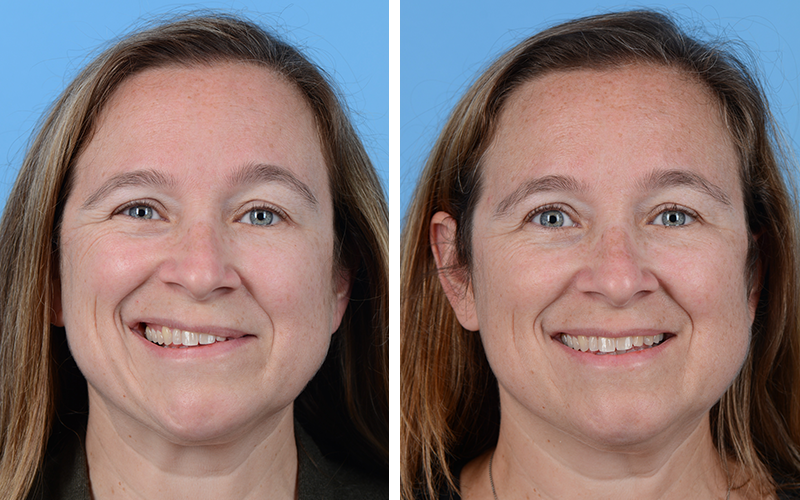Otolaryngology–Head and Neck Surgery
Facial Paralysis
Facial paralysis is the loss of facial movement due to nerve malfunction. It can appear suddenly or gradually develop over time. It causes weakness, immobility, involuntary facial movements or drooping of the facial muscles.
Overview
Patients experiencing facial weakness need to see a doctor or visit an emergency room right away. Doctors will determine whether the paralysis is caused by a stroke. If a stroke is ruled out, then the facial paralysis may be a sign of Bell’s palsy or another facial nerve disorder.
Common Causes
Some of the most common causes of facial paralysis include:
- Bell’s palsy
- Facial nerve tumors
- Lyme disease
- Ramsay Hunt syndrome
- Vestibular schwannomas
- Ear infections, ear disease, or head trauma
- Brain tumors or their treatment
- Congenital facial paralysis
- Mobius syndrome
- Goldenhar syndrome
- Neurofibromatosis, vascular malformations, or parotid surgery
- Unexpected facial paralysis after surgery in the head and neck area
7Common Symptoms
- Difficulties with speech and eating
- Inability to close the eye or blink on the paralyzed side
- Inability to move or raise the eyebrow
- Facial asymmetry
- Drooling
- Inability to express emotion on the affected side
- Facial fatigue and pain
Treatment Options
In the Facial Nerve Center at Mass Eye and Ear, we offer a full range of facial paralysis treatments, including conventional and innovative therapies and advanced surgical techniques. Common therapies and techniques include:
- Facial nerve physical therapy
- Nerve reinnervation surgery
- Gracilis muscle transfer

Our Team
The Facial Nerve Centeris staffed by surgeons, physical therapists, physician assistants and other medical specialists skilled in the evaluation and treatment of facial paralysis. Our team includes Kerry Shanley Camp, PA-C, Madeline Macaluso, FNP-BC, Julia Mellon, NP-C, and Mara Robinson, PT, MS. This combination of medical expertise allows us to help patients improve their appearance, facial function, non-verbal communication and overall well-being.

